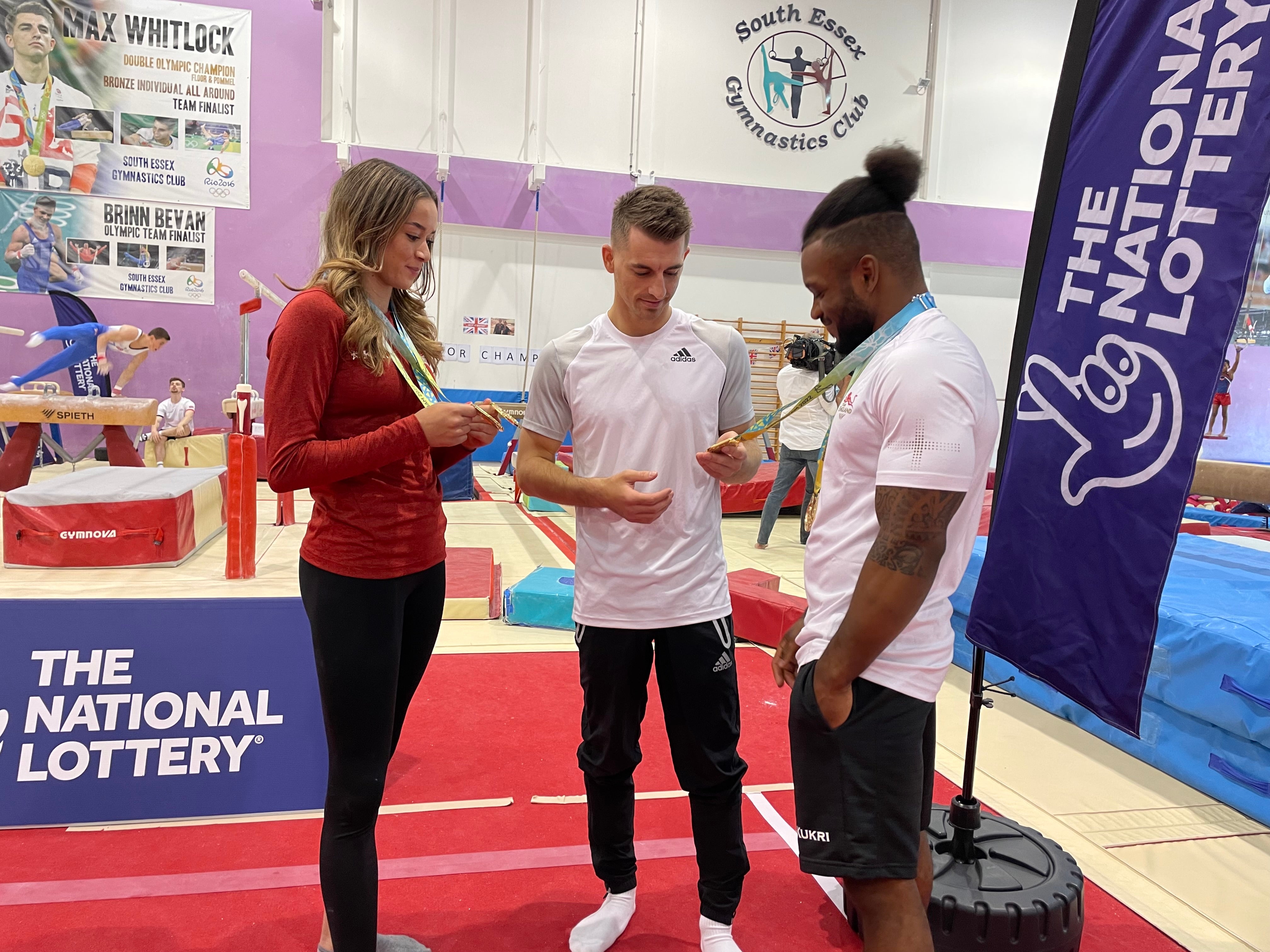
Max Whitlock believes male participation in gymnastics “has gone through the roof” as a direct result of the achievements of medal winners over the last decade.
The six-time Olympic medallist was joined by England Commonwealth Games champions Courtney Tulloch and Georgia-Mae Fenton on Friday as they surprised a room full of young children at his first club, South Essex Gymnastics.
Speaking from the venue, Whitlock said the sport is “thriving” and claimed the rise in male participation is down to major victories from British men’s teams.
“Obviously, there’s still more girls who do (gymnastics) in the grand scheme of things than boys at the moment, but boys’ participation has gone through the roof,” he told the PA news agency.
“I think that’s purely down to results. On the men’s side, we’ve brought back quite a few good results over the last 10 years and I think that’s had a massive impact.
“It is incredible to be part of a sport that is absolutely thriving.”
Whitlock admitted that the sport has changed since he first began competing and said this is mainly down to the success of the 2012 London Olympics.
“I think ever since London 2012 we really wanted to take upon that role of inspiring next generation,” Whitlock said.
“The impact that London 2012 had on the nation and on sport as a whole, especially for gymnastics, was crazy.
“The sport isn’t the same as when I started. It’s just on completely different level now, which is incredible.
“One of my favourite comments I get is when people come and say to me that their son or daughter has joined gymnastics because they saw me and it’s crazy to think that I can have that impact just by doing something that I love.”

Whitlock said another factor in the rise in popularity of the sport, particularly among boys, is the access that young people have to sporting stars through social media.
“Social media has its negatives, of course, but also has huge positives,” Whitlock said.
“Being able see the journey, but actually being able to message people, anyone of any (sporting) level, to be able to send a message and they might get back to you.
“It’s crazy because the impact that can have on young child – to have a few words of encouragement from their idol, it’s unbelievable to have that access.”
Whitlock’s views were echoed by Tulloch, who has won two gold medals during the Commonwealth games in Birmingham.
“With social media, I feel that it’s helped massively,” Tulloch told PA.
“I think before you would just see (gymnasts) on the TV and you’d be like, ‘I’d never be able to do that’ but now you can follow us social media and you can see we’re just normal people.
“We’re just like you, we started just like you, if you are going to get into the sport and and that helps.
“The clips showing our routines on Twitter and the amount of engagement and interaction that gets that will also help with people getting into the sport and raises our profiles, which ultimately helps everyone at the end of the day.”







